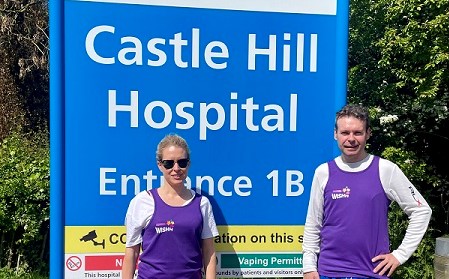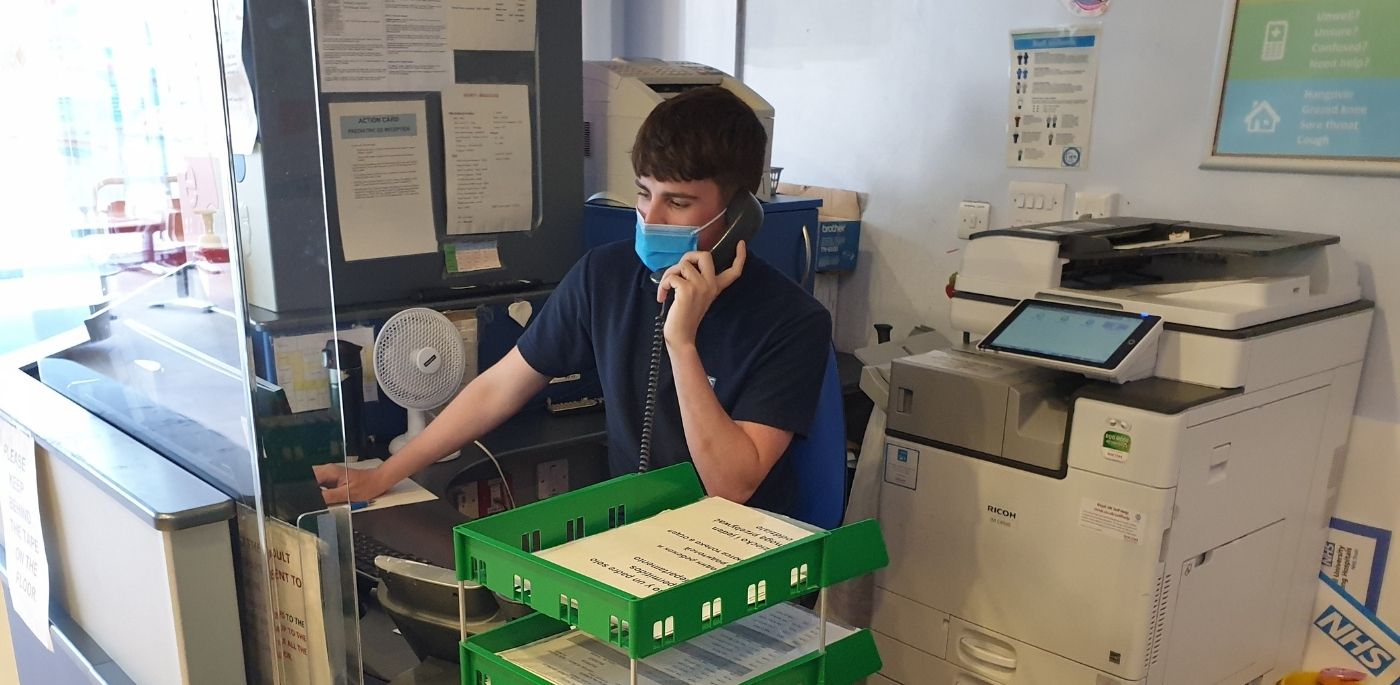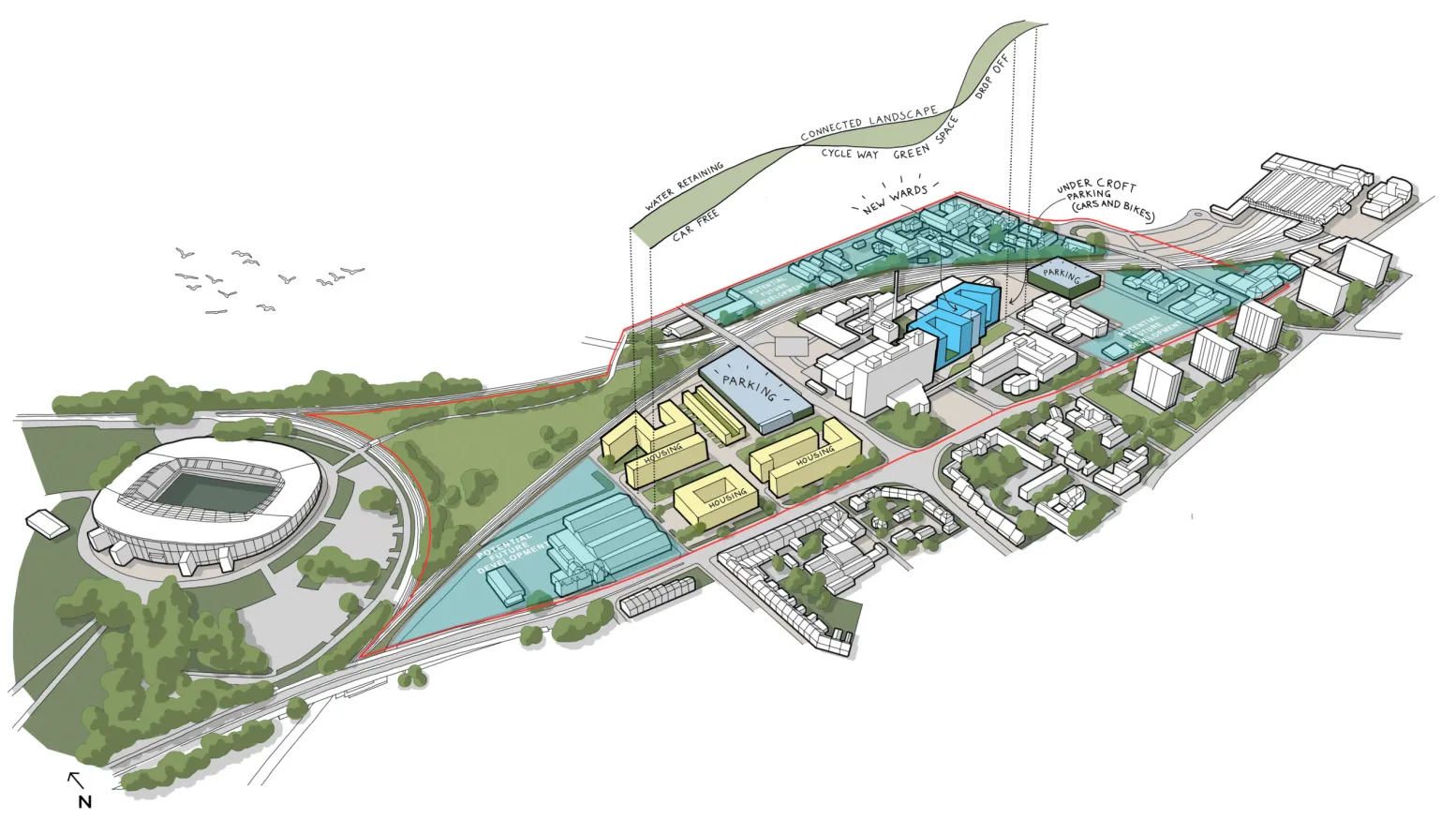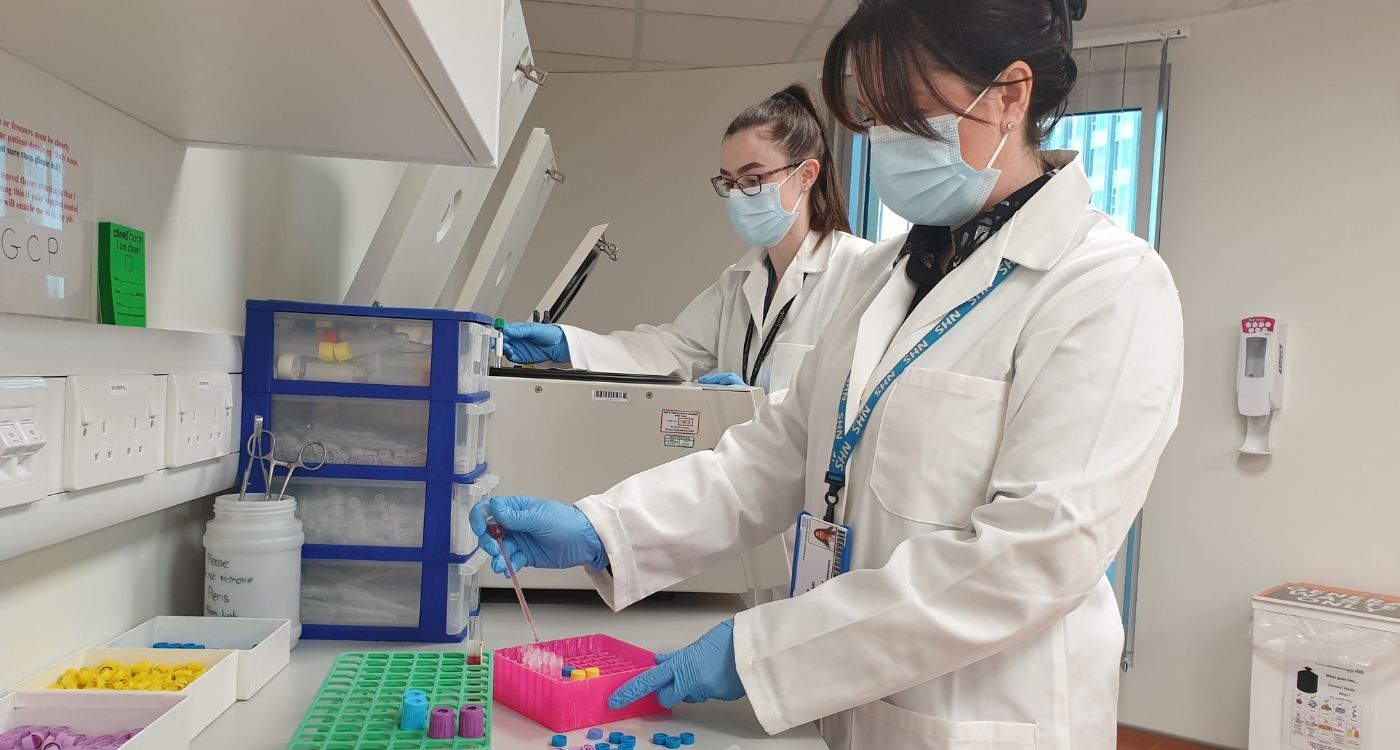It took just five months to install, but now a local hospital trust’s investment in solar technology is paying dividends.
Hull University Teaching Hospitals NHS Trust began installing solar panels on land adjacent to the Castle Hill Hospital site in Cottingham in September 2021

Alex Best, Head of Capital
The project, which quickly became known as the ‘Field of Dreams’, saw 11,000 panels installed at a cost of £4.2m in order that the Trust could begin to lower its carbon footprint and generate its own electricity.
Work was completed in February 2022, and now that the clocks have sprung forward, the arrival of longer days means the panels are now generating enough electricity to meet the complete daytime power needs of the entire Castle Hill site.
Alex Best, Head of Capital for the Trust says:
“Back in November 2020 we were lucky enough to receive a grant from the Department for Business Energy and Industrial Strategy as part of its Public Sector Decarbonisation Scheme to enable us to embark on this ambitious solar panel installation project.
“Our aim has always been to generate enough electricity to make the hospital site self-sufficient in the summer months when the days are longer, and now that the clocks have gone forward, the panels are generating around 26MWh per day so far in May, and are anticipated to rise to a peak summer load of 50 MWh per day*.
“Not only does this represent a significant contribution towards our plan to become carbon neutral by 2030, but the project is also saving us a significant amount of money on hospital energy bills; approximately £250,000 to 300,000 every month.
Marc Beaumont, Head of Sustainability for the Trust says:

“Castle Hill Hospital is a specialist regional centre for cardiology, oncology and haematology for example, and it boasts one of just a handful of specialist infectious diseases units around the country. When you consider the size of the Castle Hill Hospital site and the amount of activity that goes on here, that’s a huge amount of power that’s required to keep it running.
“Now if you stop to consider what the solar panel project is actually contributing, it’s incredible to think that the power used to deliver patients’ radiotherapy treatment sessions, to support many life-saving surgical procedures, and to keep our intensive care unit running right now is all completely self-generated, green electricity.”
Alex adds:
“The team which has worked on the solar field has done a fantastic job and we’re really pleased to be leading the way in this respect. We hope our patients and visitors will also see the value in what we’re doing for them, and for generations to come.”
Notes
* 26MWh is equivalent to the average daily energy needs of 3,250 UK households, or roughly the same amount of energy as would be needed to run 10,400 1-hour washing machine cycles.
**50MWh is equivalent to the average daily energy needs of 6,250 UK households, or roughly the same amount of energy as would be needed to run 20,000 1-hour washing machine cycles.



 Lucy, creator of the Channel 4 comedy Hull Raisers, got in touch with Paul after hearing about his challenge through social media and offered to run the distance with him last week. They set off from Castle Hill Hospital to run through the streets of Cottingham to cover the distance, which is 3.1 miles.
Lucy, creator of the Channel 4 comedy Hull Raisers, got in touch with Paul after hearing about his challenge through social media and offered to run the distance with him last week. They set off from Castle Hill Hospital to run through the streets of Cottingham to cover the distance, which is 3.1 miles.
 They chose Hull because Hull University Teaching Hospitals NHS Trust does not expect successful candidates to pay the costs of their recruitment and training upfront and then reimburse them later, like some other organisations.
They chose Hull because Hull University Teaching Hospitals NHS Trust does not expect successful candidates to pay the costs of their recruitment and training upfront and then reimburse them later, like some other organisations.











